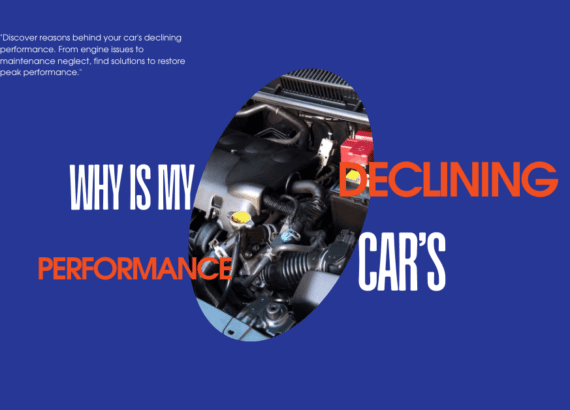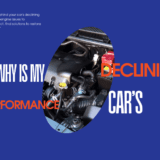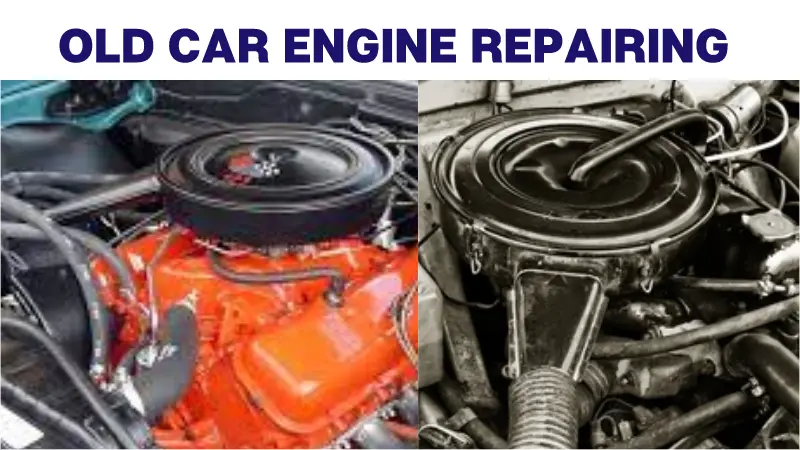How Long Do Brakes Last on a Truck? Diesel Performance Specialist

When you’re driving a truck, especially a heavy vehicle laden with a heavy load. Understanding the momentum and the critical importance of reliable brakes is paramount. In my career as a Diesel Performance Specialist, I’ve seen what can happen when brakes fail.
It’s the kind of chaos no driver should ever have to witness. Let alone experience—the risk of catastrophic damage is just too high. This is precisely why having your brakes checked and changed to new brakes. When necessary must be on your regular maintenance checklist.
Now, you might know the importance of this, but you may still wonder how often it is regularly? After reading this article, you should have a clearer answer. Several factors affect the wear and tear of truck brakes. From the frequency of heavy loads to driving habits and maintenance routines.
To maximize the lifespan of your brakes, it’s imperative to avoid any scenario. Where they could be pushed beyond their limits. Typically, a set of well-maintained truck brakes should last between 30,000 to 70,000 miles. Although this is heavily dependent on the factors mentioned. Be vigilant about maintenance to avoid getting to the point where “how long do they last” becomes “they’re finished.”
How Long Do Brakes Last On A Truck?
In my tenure as a Diesel Performance Specialist, I’ve observed that truck brake pads typically need to be replaced after about 45,000 miles, although this can vary. Some trucks might need brake replacements as early as 25,000 miles, while other truck brakes could last up to 68,000 miles depending on usage and driving conditions.
It’s crucial for anyone who has driven their truck over 25,000 miles to have their brakes checked regularly during scheduled tune-ups and maintenance inspections; a diligent mechanic will be able to tell if the brakes are wearing down prematurely. Rely on a qualified truck mechanic for necessary truck brakes replacement services, as they understand the unique demands placed on trucks versus cars, where brakes naturally wear down differently over time.
Start Coasting When Possible
In the lexicon of preserving your brake health on your diesel truck, one key tactic is to avoid using brakes unnecessarily. When you see a red light or the traffic ahead slowing down, resist the urge to keep your foot firmly on the gas until the last moment. Instead, try coasting: by simply taking your foot off the gas, you allow the truck to naturally slow down. This coasting reduces the wear and tear on your brakes, extending their lifespan, and makes you a more energetic, tuned-in driver who’s preventing brake wear.
Stop Speeding
Slowing down in general can help your brakes last longer. Stop speeding; it’s not only dangerous but also wears out your brakes prematurely. Traveling at a higher speed means you’re using more energy each time you press the brake material against the wheel.
Think of speeding as being stuck behind slow drivers – it allows you to widen the gap between vehicles, stop tailgating, give yourself more space and avoid using the brakes often and harder. It’s an easy switch that marks you as a safer driver and keeps your brakes in good condition.
Don’t Overload Your Truck
Keep your truck as light as possible. Every additional pound can be a strain on your brakes, as a heavy load forces them to work hard to stop the vehicle. Driving a lighter vehicle not only protects your brakes but your tires as well and ensures that you can safely maneuver and stop your truck.
So, before starting your journey, consider lightening your load by removing unnecessary belongings and thus decreasing the life taken away from your brake material with each stop.
Shift Gears Going Downhill
Driving down a steep hill or mountain? Shift gears instead of relying on brakes alone. Utilizing engine braking by shifting gears can significantly aid in slowing the truck without overtaxing the brakes.
When approaching a downhill slope, shift from a high speed to a low gear and let the engine and transmission do some of the work. This lessens the need to apply and release the brakes repeatedly, which can cause excess friction and wear.
Don’t Use Both Pedals
Ever seen people drive with one foot on the gas and one on the brakes? It’s not just a bad habit— it also causes excess friction which can wear out the brakes prematurely. Pushing on both pedals at once – even if not at the same time – is not the best practice. Always use the right foot for both brakes and gas, ensuring precise control and minimizing unneeded brake wear.
Get Your Brakes Inspected

Finally, remember to have your brakes inspected by a professional at least once a year, or more often if you’re noticing problems. It’s important to have confidence that your truck will stop properly every time you need it to.
A professional repair shop with trained employees can catch brake problems you might not see. Regular brake services help ensure that problems are avoided, and brake performance remains uniformly functioning and smoothly for years.
Get Help With Brakes & Diesel Truck Care
Proactive Maintenance: Regularly scheduling checks with a team of Diesel Performance Specialists can significantly improve brake lifespan and overall truck health.
Engine Care: Keeping the engine finely tuned ensures that the brake system isn’t overtaxed, aiding in their longevity and performance.
Tire Regulations: Appropriate tire pressure and alignment affect brake wear; maintenance here is crucial.
Expert Brakes Service: Professional brakes care, including inspections and pad replacements, is vital to ensure they last longer, and the truck runs smoothly.
Comprehensive Checks: A thorough approach to general maintenance prevents breakdowns, addressing electrical and electronic services, and heating and cooling system in an engine services.
Transmission Attention: Regular transmission services ensure the truck operates efficiently, placing less strain on the braking system.
Under-Car Inspections: Addressing under-car services can help catch issues before they become major, aiding in preserving the vehicle’s brakes and overall condition.
Personalized Service: A dedicated Diesel Performance Specialist will know your truck’s quirks and needs, offering tailored advice to maintain and improve its longevity.
Factors That Affect Your Brake Pads
Driving Habits
The way you use the brake pedal can significantly define the lifespan of your brake pads. If you’re constantly in a rush, pressing harder than necessary, you’re looking at a faster replacement pace. On the flip side, gentle and gradual deceleration can extend your pads’ lifetime. It’s as if your truck’s brakes have a voice; listen—they’re advising you not to push them too much.
Brake Pad Hardness
While out on a job in my performance truck, I’ve learned that the hardness of brake pads has a direct correlation with their life expectancy. Striking a balance is key; harder pads may endure the warm environments of vigorous driving yet could be overkill for a casual cruise. Conversely, softer pads can absorb heat without a fuss but face an early demise under harsh conditions.
Manual Transmission
There’s a sort of unspoken harmony between manual transmission and brake pads. As someone who’s experienced the finesse of downshifting through the gears, I can attest that engine braking reduces the necessity to touch the brakes. It’s this dance between the gas and shifting gears that can help slow down your vehicle, giving your truck’s brake pads a well-deserved break.
Condition Of Rotors And Calipers
Even the smallest imperfection on a rotor or a caliper can wage an invisible war on your brake pads. Picture this: you’re in your truck; there’s a smell—no, not the usual smells of outdoor work—an unfamiliar burning. It indicates a stuck brake caliper. And that jittery feedback while stopping? A warped rotor. These are clear signs your truck needs care, and such conditions will surely cut down on your pads’ longevity.
Driving Environment
Your brake pads might just outlast the 40,000-mile gap if your world is one of long, uninterrupted drives on straight, smooth roads. Contrast this with heavy traffic or navigating over rugged terrain, and you’re looking at a vastly different tale of wear and tear. It’s not just about when to replace brakes; it’s about understanding the circumstances at play in the environment you drive in that can affect your brake pads significantly.
Maximizing Your Brake Pads
Drive More Slowly
Driving more slowly ensures brakes exert less force to stop your car, placing less pressure on brake pads. This practice not only makes pads last longer but also helps conserve fuel and save money. Experience has shown me that such tactics lead to longer-lasting, more efficient vehicles.
Reduce Truck Weight
Lighten your truck’s load to reduce the force your brakes need to apply when stopping. Check the back seat and carrier areas and get rid of any unnecessary weight. This strategy doesn’t just save your brake pads, it also helps conserve fuel.
Engine Braking
With a manual transmission, take full advantage of engine braking. Ease your foot off the accelerator and carefully downshift the gears as the vehicle slows down. It minimizes the stress on your brake pads, saving them for when you really need them—like in an emergency.
Implementing these basic tips will change the way you drive and help extend the life of your brake pads on your truck. From embracing a slower pace on the streets to shedding extra pounds in your vehicle, it all adds to the welfare of your trusted set of wheels.
Conclusion
In conclusion, the intricacies of maintaining and understanding the durability of brakes on a diesel truck cannot be overstated. As a Diesel Performance Specialist, I’ve underlined just how vital it is to regularly monitor and replace your truck’s brakes, emphasizing that this is not merely routine maintenance but a critical safety measure.
A luxurious span of 30,000 to 70,000 miles could be the lifespan of a well-maintained set of brakes, subject to driving habits, vehicle load, and proper care. Engaging in conscientious driving practices, adhering to recommended maintenance schedules, and responding proactively to the signs of wear and tear can extend the life of your brakes.
Ultimately, while brakes are designed to stop your truck, smart brake care ensures that your journey as a driver continues safely and without interruption.
FAQs
How long do brakes last on a diesel truck?
Typically, the average lifespan of brake pads is around 25,000 to 50,000 miles, but this can vary significantly depending on how and where the vehicle is driven, sometimes giving the operator 70,000 miles or more of reliable braking performance.
Do performance brakes last longer?
Upgrading your brake pads to a performance formulation has a lot of benefits. The biggest benefit is that performance pads resist fade much, much better than stock brakes.
How long do brake pads last on Duramax?
Generally speaking, truck experts recommend having brake pads replaced after you’ve driven a vehicle 45,000 miles. Some trucks need brake replacements after as little as 25,000m miles while other truck brakes can last up to 68,000 miles.
How long do brake pads last on a heavy duty truck?
Typically brake pads can last between 25,000 and 65,000 miles, and even upwards of 80,000 miles depending on the type of brake pads. There’s so much variation because of the factors that impact break down. Take the time to check your owner’s manual to get an idea of the recommended service schedule.
Do performance brakes wear faster?
High-performance brakes can wear out faster than standard brakes, so staying on top of their condition is essential for safety.
How long do high-performance brake pads last?
Brake pads generally last between 30,000 and 70,000 miles, but some can last as long as 100,000 miles. There are many factors that account for this wide range. First, brake pads come in a variety of types and compositions and are attached to even more varying brake systems and rotors.











